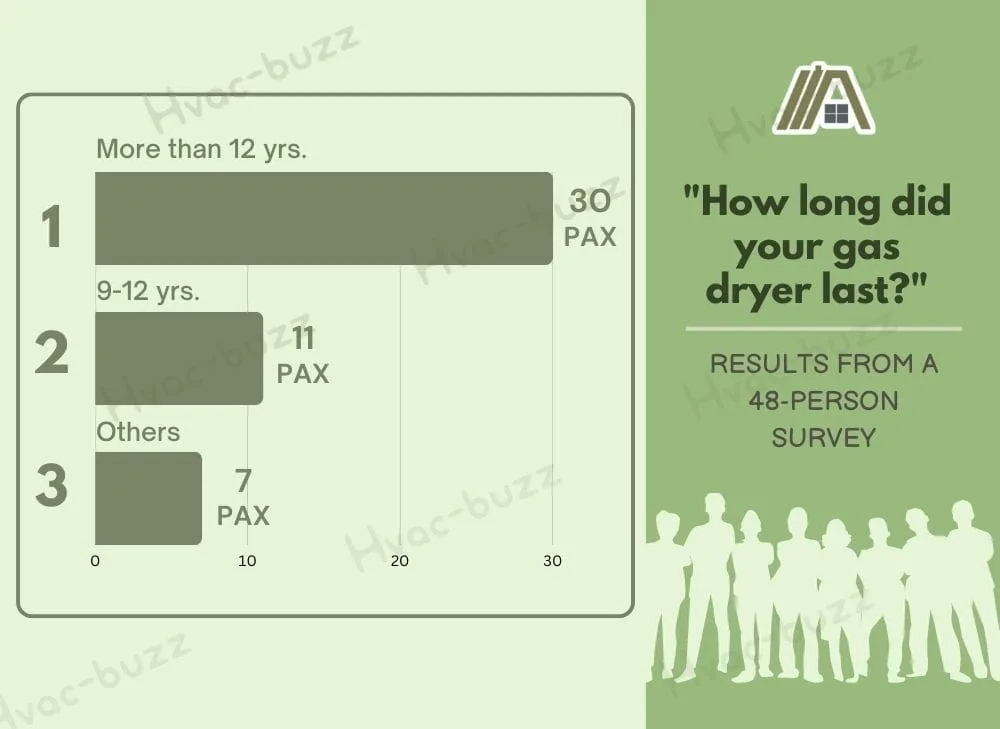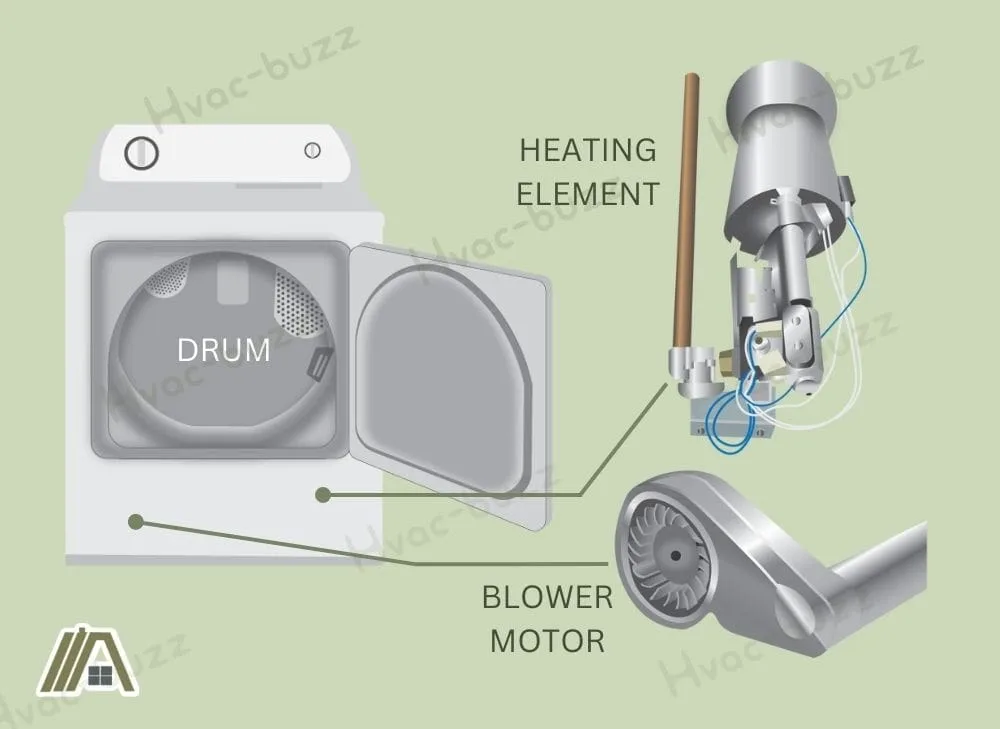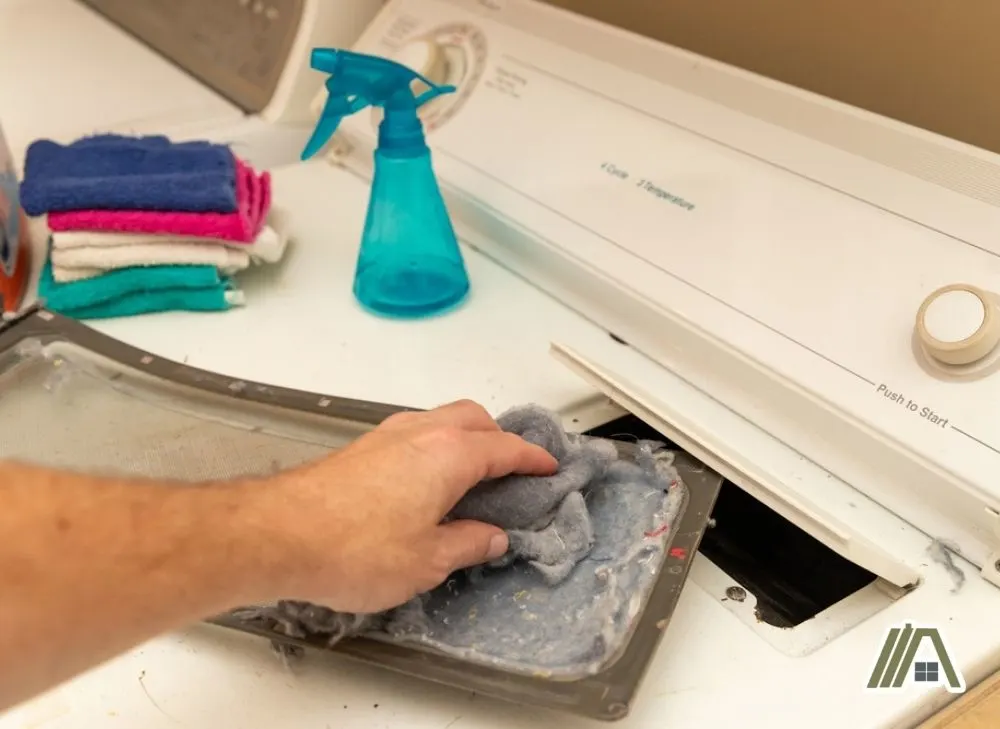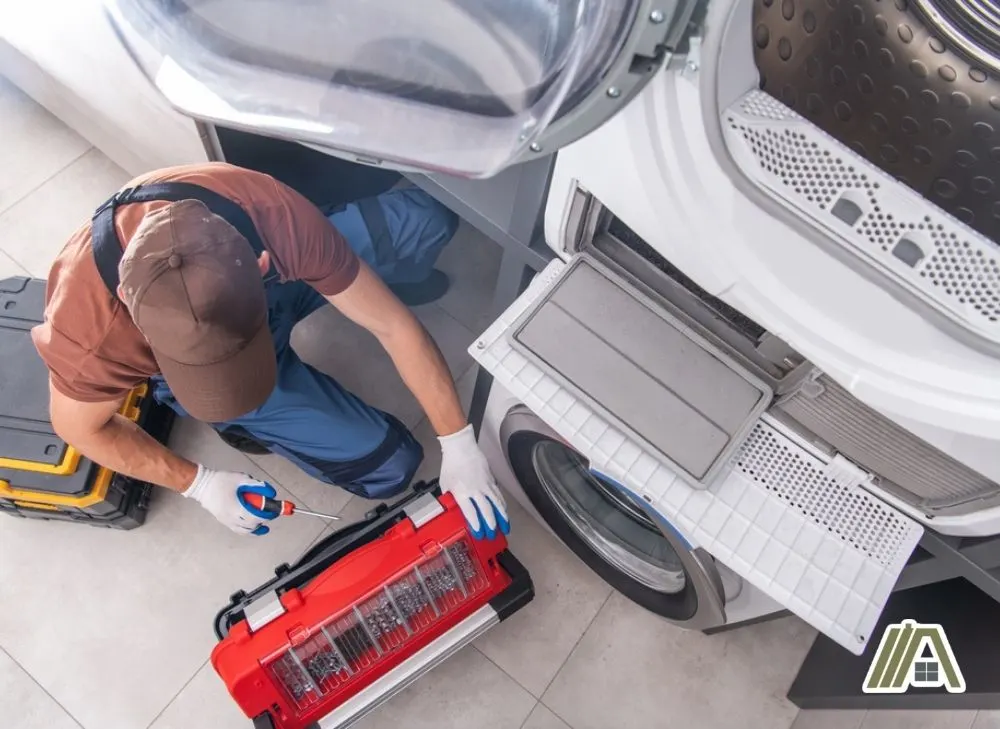I don’t know anyone who has owned more than two dryers—at least, they haven’t had to replace their dryer more than once as a result of it breaking. Manufacturers give gas dryers an average lifespan of about 13 years, but it would seem that they can actually last longer than this.
To test my theory, I conducted a survey online to get real-world data to answer the question of gas dryer longevity more exactly.

62% of gas dryers lasted over 12 years, while 22% lasted between 9-12 years. 8% lasted between 6-9 years and 3% between 3-6 years, with a small percentage of 5% lasting 1-3 years.
Gas Dryers Typically Last 12+ Years
We took to Facebook and asked the question, “How long did your gas dryer last?” on a DIY home improvement page.
According to the survey results, 62% of people reported that their gas dryer lasted for more than 12 years, while 22% said it lasted for 9-12 years.

While we did not conduct a similar poll for electric dryers, the comments from the survey suggest that people believe gas dryers are more durable and long-lasting than electric dryers due to their mechanically simple design.
People reported having gas dryers last for over 20 years with just simple repairs and maintenance.
This is in contrast to electric dryers, which, according to some people, have more complex parts and electronics that can fail and need replacement more frequently.
Replacement parts for gas dryers were also said to be cheaper and easier to install.
Many people agree that it’s best to keep it simple when it comes to gas dryers. The fancier dryers with fancy electronics don’t last as long.
It also came down to the manufacturers, with some brands lasting longer than others.
People’s comments also suggest that how a dryer is used can affect its longevity. Overloading an electric dryer can shorten its lifespan because it requires the heating elements to run longer. In contrast, people reported that they fill their gas dryers to the max, and it still runs perfectly today.
One of the reasons people may prefer an electric dryer is that they simply don’t like gas or they are concerned that gas dryers are on their way out. But otherwise, the majority of people said gas dryers last longer than electric dryers.
What Makes a Gas Dryer Last so Long
The simple design of gas dryers is one of the factors that contribute to their longevity.
With fewer components, there are fewer parts that can break or malfunction. This also makes repairs easier and more cost-effective since fewer parts need to be replaced in case of a problem.
Additionally, the absence of complex electronics and touchscreens reduces the likelihood of failure due to software glitches, and makes it easier for people to troubleshoot problems on their own.
The components in a gas dryer, such as the heating element, blower motor, and drum, are often made of high-quality materials and built to last. This means they can withstand regular use and perform effectively over a long period without requiring frequent repairs or replacements.

In the event that something does go wrong with a gas dryer, many of its components are easy to repair or replace.
One of the commenters from the survey said they Googled how to fix their gas dryer, and within 15 minutes, they had repaired it themselves. This was five years ago, and they haven’t had an issue since.
One of the advantages of gas dryers is they have faster drying times than electric dryers. This means they don’t need to run for as long. Having a shortened drying time and not having to use it as often and as long can prolong a dryer’s lifespan.
Many of the participants agreed that the age of the dryer also played a part. They don’t build appliances like they used to.
These days the newer fanciers models may only last up to seven years, but your grandmothers dryer from the 80s is still going strong.
Some People Report Short Lifespans
While the majority of people from the survey reported that their gas dryers lasted more than 12 years, a smaller portion (8%) said that their gas dryers lasted between 6 and 9 years, and an even smaller portion (3%) reported that their gas dryers lasted between 3 and 6 years.
Although these numbers may not be substantial compared to the majority of people who reported long-lasting gas dryers, it’s still important to note that a portion of respondents experienced relatively short lifespans for their gas dryers.
These low numbers, although seemingly insignificant, represent a real-life experience of some individuals and provide insight into the potential lifespan of a gas dryer.
It is important to consider these experiences when making decisions about purchasing a gas dryer or assessing the longevity of one you already own.
It also suggests the need for further investigation into the reasons behind these short lifespans and possible steps that can be taken to improve them.
Potential Reasons for Early Failure
The first and most likely the main cause of a gas dryer not lasting longer than five years is lack of proper maintenance. For example, failing to clean the lint trap can cause it to become clogged, which can result in the dryer overheating.

Overheating can cause the dryer to become damaged and could even lead to a fire, both of which can significantly shorten its lifespan. To help ensure the longevity of a gas dryer, it is important to regularly clean the lint trap and follow any other maintenance instructions provided by the manufacturer.
If your gas dryer only lasted one to three years, this could be due to poor installation. Improper installation can lead to damage to the electrical or gas connections, which can cause the dryer to malfunction.
If your gas dryer is not vented correctly, it can cause the dryer to fail. Ventilation is essential as it helps to regulate the dryer’s temperature and prevent it from getting too hot.
When the dryer does not have adequate ventilation, it has to work harder to remove the heat from inside, putting extra strain on its components and increasing the risk of damage.
Another reason your dryer may not last is constant overloading. Even though one dryer owner claimed they could overload their dryer to the point of the door not shutting, I don’t suggest you do this.
When a dryer is overloaded, it has to work much harder than it should, which can lead to significant strain on its components. This added strain can cause the components to wear out more quickly than they would otherwise, leading to a shorter lifespan for the machine.
If you are using your dryer too often, it could also cause early retirement for the appliance. Using the dryer too much also puts a lot of stress on its components, causing them to wear out more quickly and eventually break down or stop functioning effectively.

If you find your dryer cannot keep up with your laundry requirements, it may be time for an upgrade.
Sources
https://www.bobvila.com/articles/how-long-do-washers-and-dryers-last/
https://www.courant.com/ctnow/family/hc-cthome-lifespan-of-household-appliances-20170112-story.html
https://applianceexpresstx.com/dryer-repair/how-long-do-dryers-last/
